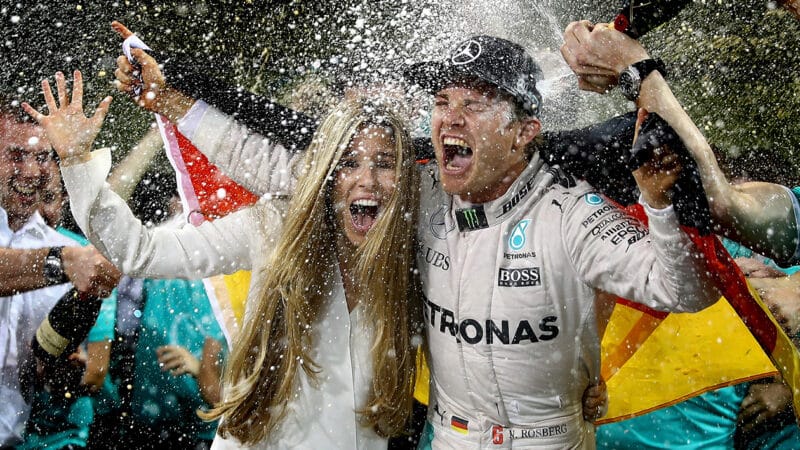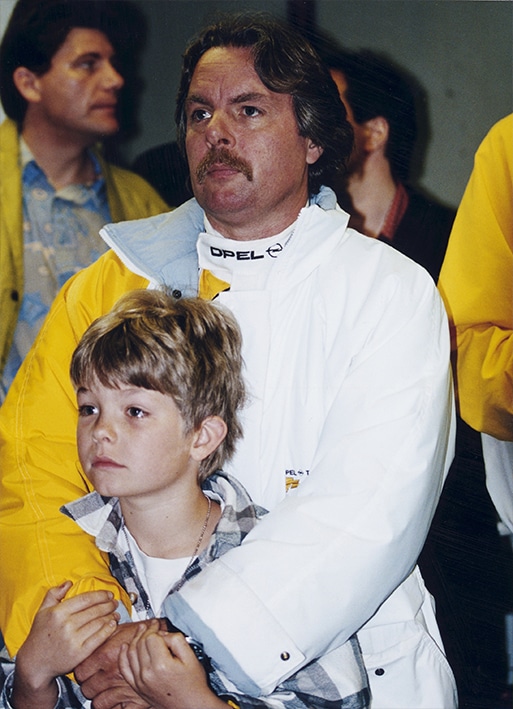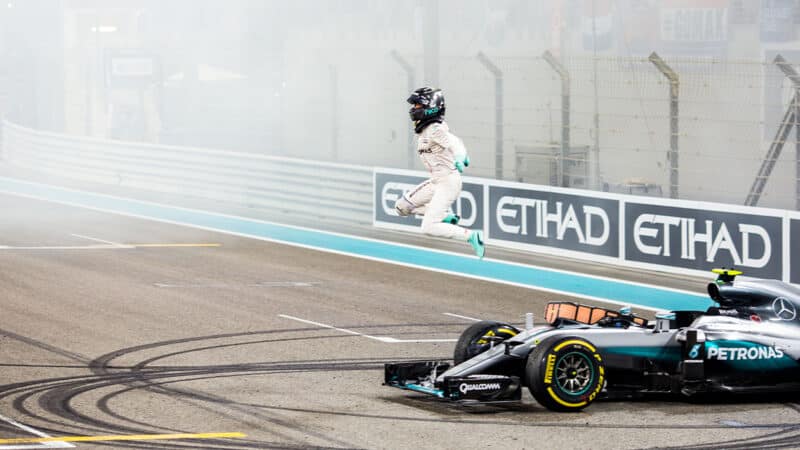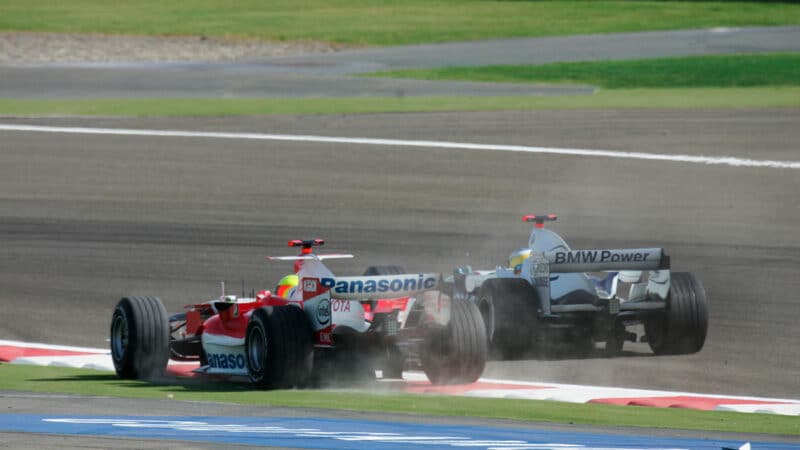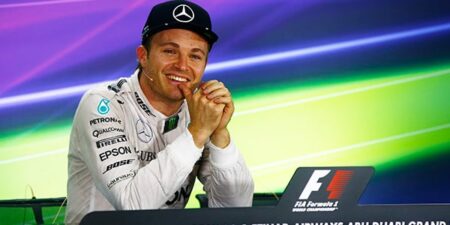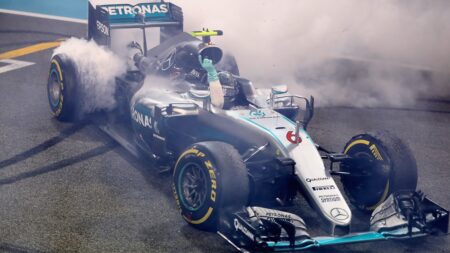The interview itself was remarkable, too, not least because it revealed that Nico’s indefatigable sang-froid, which I had first experienced when he was just 13, was still fully intact and indeed even more robust now that he was 21. “I’m seriously quick and scared of no-one,” he said at one point, which impressed me then and impresses me still. At another point I asked him about his father, and our exchange bears repeating.
Me: “As you know, I’ve known your dad for quite a while, and he’s always told me that, with regard to which team you drive for, the decisions are yours. He says his job is only to facilitate your choices.”
Him: “No, he has a bit more influence than that.”
Me: “I guess it’s a question of give-and-take.”
Him: “Yes. I can’t be too bossy with him, because he’s managing me for free.”
Me: “Is he a good motivator?”
And now Nico stared at me, in silence, saying nothing, then he stared at me some more, then he burst out into fits of uncontrollable laughter, rocking backwards and forwards in his chair, before finally spitting out an answer of sorts: “No, not a good motivator.” Once he had calmed down he explained that, although he loved and admired his dad, he was simply too pugnacious a chap to be readily describable as a motivator. I knew exactly what he meant. Keke was and is a nice man, but he was and is also a hard man. In other words he was and is the kind of man you would always want to have in your corner.
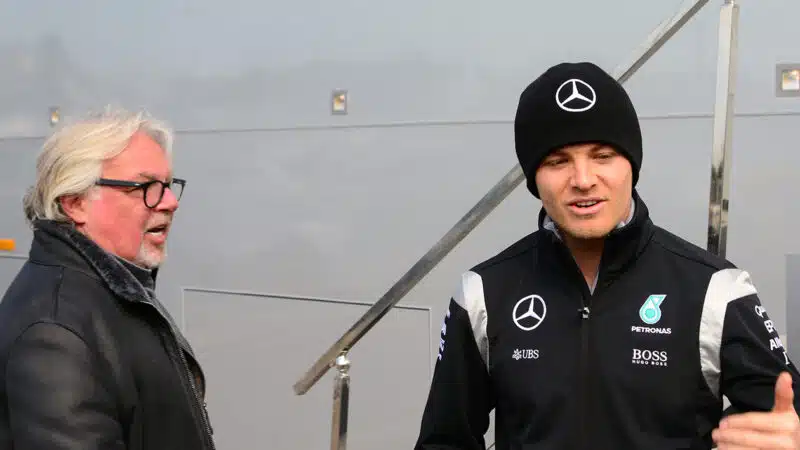
“Not a good motivator”: Keke with Nico in 2016
Grand Prix Photo
Rosberg Jr raced for Williams for four seasons, from 2006 to 2009, bagging two podium finishes in that time, both of them in 2008: third in Australia and second in Singapore. For 2010 he joined Mercedes, where his team-mate would be one of the greatest drivers in F1 history, Michael Schumacher, albeit returning from a three-year retirement and, at 41, no longer at his once-brilliant best. Nico stood on three more podiums that year – third in Malaysia, China, and Britain – but the following season, 2011, the Mercedes team went backwards. Now experienced and reliable, Nico scored points often, but he never finished higher than fifth.
By 2011 I had been working for McLaren as its comms/PR chief for three years, and I will never forget bumping into Nico in the Valencia paddock that year. Lewis Hamilton had qualified our car third, best of the rest behind the two Red Bulls, and Rosberg had managed to strong-arm his Mercedes to a P7 grid slot. As we passed each other, Nico stopped, half-turned, then hissed my name out of the corner of his mouth. I then stopped, too. “Is Jenson [Button] going to continue with you guys next year?” he stage-whispered. “Could there be a drive for me alongside Lewis? I know him well. I could drive well with him.” At that point a Merc marketing guy looked over, and Nico hurried on, clearly unwilling to be spotted in conversation with the opposition. I SMS’d him that evening, asking him whether he wanted to continue our discussion more discreetly, but he did not reply. What he had said to me that afternoon was prophetic, though, even if events did not pan out in the way that he had then envisaged them: “Could there be a drive for me alongside Lewis? I know him well. I could drive well with him.”
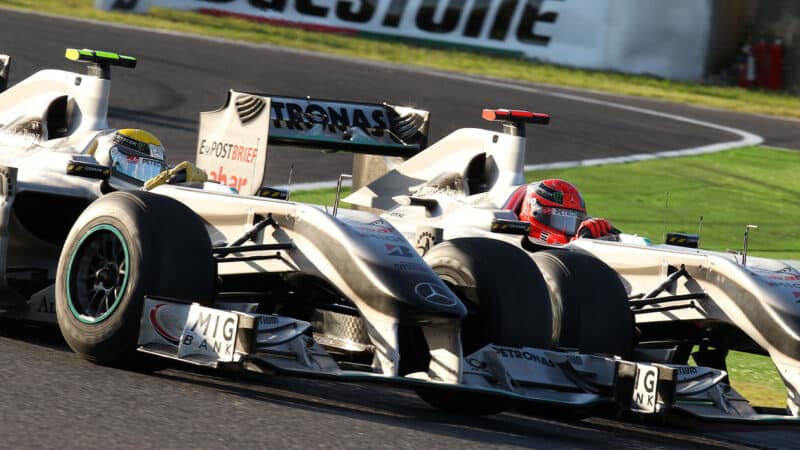
Rosberg vs Schumacher at Suzuka in 2010
Grand Prix Photo
In China the following year, 2012, Rosberg scored his maiden F1 grand prix win, having taken the pole by more than half a second, and by now he was serially outdriving the man in the other Merc, Schumacher, who, at 43, was preparing to quit F1 for good this time. The following season, 2013, Nico won twice more, at Monaco and Silverstone, by which time his team-mate was indeed Lewis, but because Hamilton had left McLaren for Mercedes, not because Rosberg had left Mercedes for McLaren, as he had breathlessly suggested one afternoon in Valencia two years before. If he remembers that conversation, he must be delighted that it came to naught, because, after that, Mercedes became the dominant force in F1, while McLaren slipped gradually backwards.
In 2014 Rosberg won in Australia, Monaco, Austria, Britain, and Brazil. In 2015 he won in Spain, Monaco, Austria, Mexico, Brazil, and Abu Dhabi. In 2016 he won in Australia, Bahrain, China, Russia, Azerbaijan, Belgium, Italy, Singapore, and Japan, winning the F1 drivers’ world championship with a final flourish of four consecutive second places in Austin, Mexico City, São Paulo, and Abu Dhabi. I think I sent him a congratulatory SMS after every one of those victories, but he never replied to any of them. For the record, during that time McLaren won no races at all.

